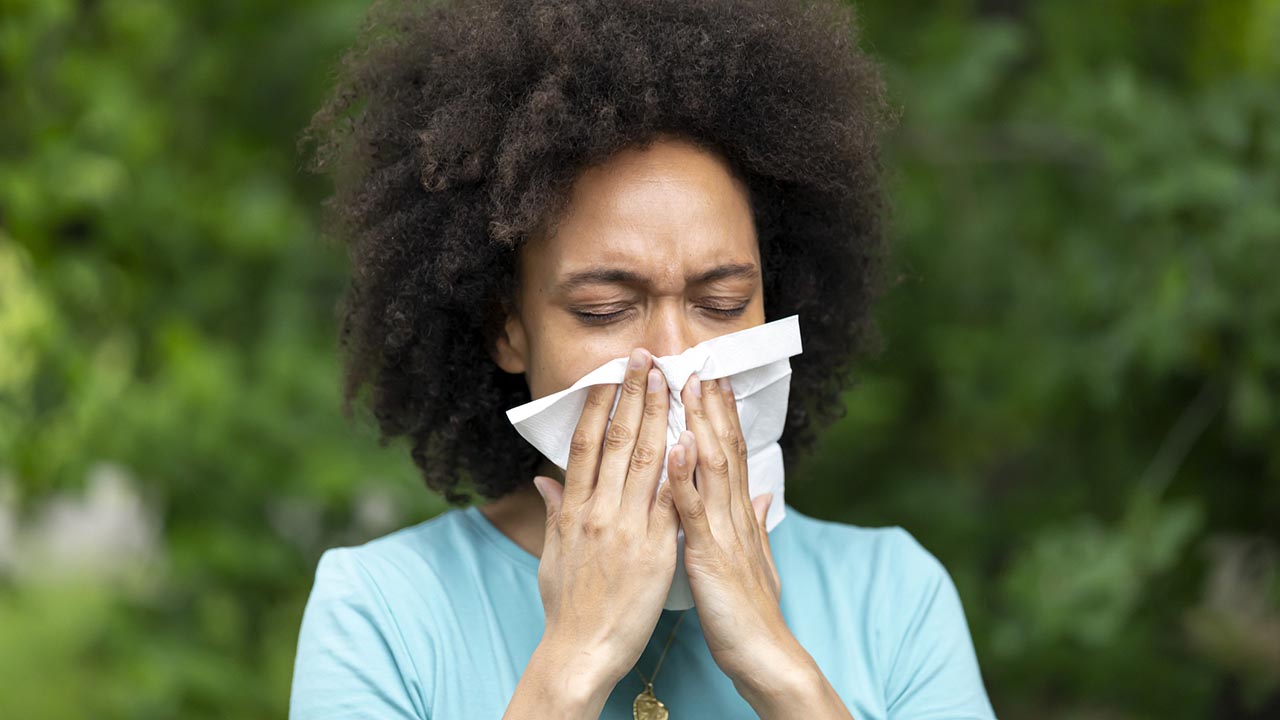Many times, when patients seek the help of an allergist for itchy eyes and a runny, stuffy nose, it’s because environmental factors are triggering their allergies. As a result, their allergy symptoms are so bothersome that they cannot take it anymore. Seeing an allergist is not only an option for those with severe allergies, but should be determined based on each individual person’s health goals.
Our immune systems help us fight off infections, but it can cause problems when it reacts to things they are not supposed to. Similar to food allergies, environmental allergies, sometimes called seasonal allergies are a specific type of immune response to certain environmental triggers. The most common triggers or causes of environmental allergies are pollens (trees, grasses, and weeds), mold spores, animal dander, and dust mites.
Environmental allergens can be split into two major categories: perennial and seasonal. Perennial allergens are allergens that last all year long and includes things like indoor molds, animal dander and dust mites. Seasonal allergens are more prevalent at certain times of the year and consist of pollens and some types of outdoor molds. Tree pollen is found in the spring, typically March through May; grass pollen is found in the summer, typically May through July; and weed pollen is found in the fall, typically August through the first frost of the year.
If you have any of these symptoms, the next step to determine if it is allergies or not is to have allergy testing performed. There are many non-allergic causes to these types of symptoms, and allergy testing is the best way to distinguish between these causes. If allergies are the cause, allergy testing can also help identify what allergens you are allergic to.
If you are struggling to control your symptoms, an allergist can work with you based on your health goals to create an individualized treatment plan. An allergist can determine if your symptoms are allergic or not. Knowing this can help you, your allergist or other health care providers better determine treatment options. If your symptoms are determined to be allergic, discovering your specific allergic triggers can help an allergist suggest ways to decrease your exposure to these allergens. Your allergist can also work with you to determine if immunotherapy (allergy shots) is a therapy that would be recommended for you to help decrease your reaction to your triggers.
Allergy testing can be performed through either blood work or skin prick testing.
Skin prick testing has evolved over the years and is currently performed with a small plastic device that has spikes on one end that make a small scratch in the skin. This testing then stays on the skin for 15 minutes, and each prick site is monitored for development of a hive, which would indicate you may be allergic to that allergen. An allergist will read your testing and discuss your results with you. Antihistamines (i.e., Benadryl, Zyrtec, Claritin, Allegra) must be stopped for one week prior to skin prick testing, as these will inhibit the skin response that is evaluated. For people who cannot stop their antihistamines or have other reasons for not being able to skin prick test, blood work can be a good screening tool, but fewer allergens are checked via blood work than with skin testing.
What are environmental allergies?
Our immune systems help us fight off infections, but it can cause problems when it reacts to things they are not supposed to. Similar to food allergies, environmental allergies, sometimes called seasonal allergies are a specific type of immune response to certain environmental triggers. The most common triggers or causes of environmental allergies are pollens (trees, grasses, and weeds), mold spores, animal dander, and dust mites.
At what times of year do these reactions occur?
Environmental allergens can be split into two major categories: perennial and seasonal. Perennial allergens are allergens that last all year long and includes things like indoor molds, animal dander and dust mites. Seasonal allergens are more prevalent at certain times of the year and consist of pollens and some types of outdoor molds. Tree pollen is found in the spring, typically March through May; grass pollen is found in the summer, typically May through July; and weed pollen is found in the fall, typically August through the first frost of the year.Types of environmental allergens:
- Perennial allergens
- Indoor molds, animal dander, dust mites
- Seasonal allergens
- Pollens:
- Spring (March-May): Tree pollen
- Summer (June-August): Grass pollen
- Fall (August-First Frost): Weed Pollen
- Some types of outdoor molds
How do you know if you have environmental allergies?
Environmental allergy symptoms can vary person to person, but environmental allergens typically cause eye and nose symptoms. These symptoms can include:- Itchy, red or watery eyes
- A runny, congested or itchy nose
- Frequent sneezing
- Sinus pressure/pain
- Feeling as if mucous is draining down the back of your throat
- Feeling as though you need to clear your throat or coughing
- An itchy throat
- Recurrent sinus infections
If you have any of these symptoms, the next step to determine if it is allergies or not is to have allergy testing performed. There are many non-allergic causes to these types of symptoms, and allergy testing is the best way to distinguish between these causes. If allergies are the cause, allergy testing can also help identify what allergens you are allergic to.
Who should see an allergist for their environmental allergies?
If you are struggling to control your symptoms, an allergist can work with you based on your health goals to create an individualized treatment plan. An allergist can determine if your symptoms are allergic or not. Knowing this can help you, your allergist or other health care providers better determine treatment options. If your symptoms are determined to be allergic, discovering your specific allergic triggers can help an allergist suggest ways to decrease your exposure to these allergens. Your allergist can also work with you to determine if immunotherapy (allergy shots) is a therapy that would be recommended for you to help decrease your reaction to your triggers.
How is allergy testing performed?
Allergy testing can be performed through either blood work or skin prick testing.Skin prick testing has evolved over the years and is currently performed with a small plastic device that has spikes on one end that make a small scratch in the skin. This testing then stays on the skin for 15 minutes, and each prick site is monitored for development of a hive, which would indicate you may be allergic to that allergen. An allergist will read your testing and discuss your results with you. Antihistamines (i.e., Benadryl, Zyrtec, Claritin, Allegra) must be stopped for one week prior to skin prick testing, as these will inhibit the skin response that is evaluated. For people who cannot stop their antihistamines or have other reasons for not being able to skin prick test, blood work can be a good screening tool, but fewer allergens are checked via blood work than with skin testing.



